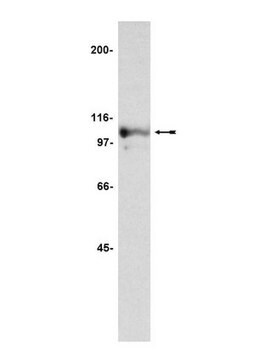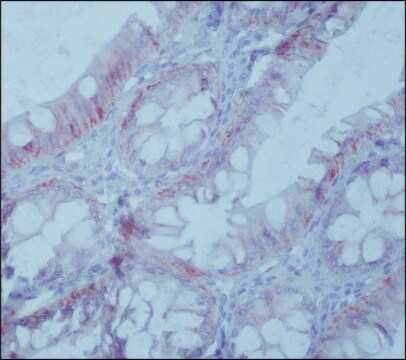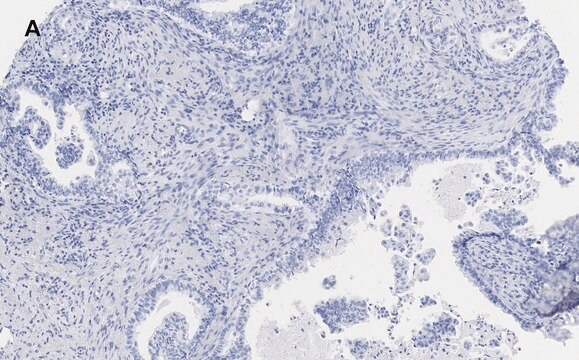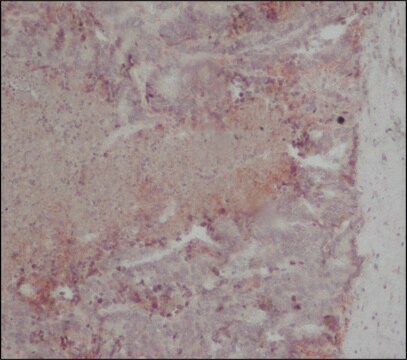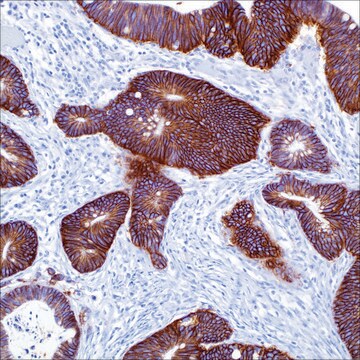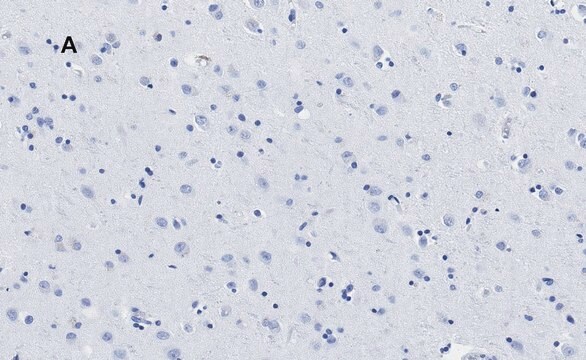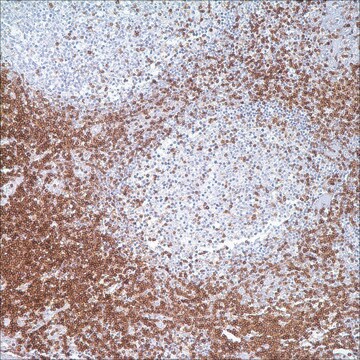MAB4444
Anti-Epithelial Cell Adhesion Molecule (EpCAM) Antibody, clone 8
clone mab 8, from mouse
Synonym(s):
Adenocarcinoma-associated antigen, CD326 antigen, Cell surface glycoprotein Trop-1, Epithelial cell surface antigen, Epithelial glycoprotein, KS 1/4 antigen, Major gastrointestinal tumor-associated protein GA733-2, antigen identified by monoclonal antibo
About This Item
ICC
WB
immunocytochemistry: suitable
western blot: suitable
Recommended Products
biological source
mouse
Quality Level
antibody form
purified immunoglobulin
clone
mab 8, monoclonal
species reactivity
human
technique(s)
flow cytometry: suitable
immunocytochemistry: suitable
western blot: suitable
isotype
IgG2aκ
NCBI accession no.
UniProt accession no.
shipped in
wet ice
target post-translational modification
unmodified
General description
Specificity
Immunogen
Application
Western Blot Analysis: A previous lot was used by an independent laboratory in WB. (Ng, V., et al., 2010)
Stem Cell Research
Pluripotent & Early Differentiation
Adhesion (CAMs)
Quality
Immunocytochemistry Analysis: 1-10 µg/mL from a previous lot detected epithelial cell adhesion molecule (EpCAM) in human embryonic stem cells.
Target description
Physical form
Storage and Stability
Analysis Note
Human embryonic stem cells
Other Notes
Disclaimer
recommended
Storage Class
12 - Non Combustible Liquids
wgk_germany
WGK 1
flash_point_f
Not applicable
flash_point_c
Not applicable
Certificates of Analysis (COA)
Search for Certificates of Analysis (COA) by entering the products Lot/Batch Number. Lot and Batch Numbers can be found on a product’s label following the words ‘Lot’ or ‘Batch’.
Already Own This Product?
Find documentation for the products that you have recently purchased in the Document Library.
Our team of scientists has experience in all areas of research including Life Science, Material Science, Chemical Synthesis, Chromatography, Analytical and many others.
Contact Technical Service
